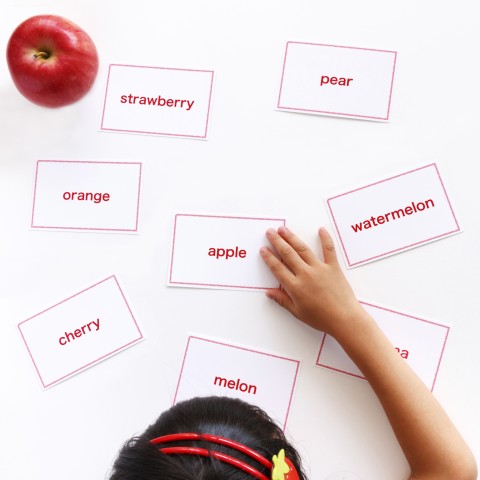
If you’re a native English-speaker looking to learn the beautiful Hindi language, you may have asked yourself “Is Hindi hard to learn?” Doubts like this are understandable, given the massive difference between the Hindi and English language scripts. However, not all answers are black and white.
There are a number of factors that can influence how easily you learn Hindi:
- Your background
- Your willingness to learn
- The Hindi teaching methods being used
Confident about the first two factors? Leave everything else to HindiPod101.com! We’re committed to making Hindi learning as interesting as possible.
 Table of Contents
Table of Contents
- Hindi: Yay or Nay!
- Why Should You Learn Hindi?
- The Most Easygoing Parts of Learning Hindi
- The Hardest Parts
- Handy Tips for a New Hindi Learner
- Why is HindiPod101.com Great for Learning Hindi?

Making Hindi Learning Fun for You!
1. Hindi: Yay or Nay!
You want to know how difficult (or easy!) learning Hindi will be for you. You want to know if you should take the plunge or not.
We won’t lie: Learning Hindi is no piece of cake! That said, there are some things that make Hindi hard to learn, and others that are very simple. Once you get the drift of it, you won’t be able to help falling in love with the language’s many amazing features. 🙂
For instance, Hindi is spoken just the way it’s written. Once you learn the alphabet, you’ve already won half the battle! (And with HindiPod101.com, you can learn the alphabet in no time.)
Now, let’s get going already and cover the basics of learning Hindi. In this article, we’ll give you some marvelous facts about the Hindi language, show you the good, bad, and ugly of the learning process, and give you tips for success along the way!
2. Why Should You Learn Hindi?
Why on earth would you want to learn Hindi? Honestly, the benefits are plenty, especially if you’re planning to stay in India for a while. Allow us to list some of the best reasons to learn Hindi with us.
1 – Wide Popularity
Hindi is one of the most spoken languages in India. Did you know that Hindi is the official language in a total of nine Indian states, collectively known as the Hindi Belt? But the language’s huge reputation doesn’t end there. In fact, natives of South India are quite familiar with the Hindi language as well. What’s more, take into account the massive fan base of Bollywood movies all over India—and the world—to see just how popular Hindi language media has become!
2 – Professional Benefits
Learning Hindi will open up many job opportunities for you. To say the least, it will give you a strong advantage in the Indian atmosphere. People in India are more inclined to hire someone who knows such a prevalent language like Hindi than someone who only knows English (or another less-popular language). When you know Hindi, they actually begin to see you as a part of their own society and culture.
3 – Social Mingling
Knowing at least a little Hindi will definitely give you an edge in many ways, from breaking the ice in conversations to dating someone. It will help you connect with natives and socialize with them in both personal and professional scenarios. This is especially true if you’re in Northern India, where conversing in Hindi is the real shortcut to people’s hearts.

Are You Studying the Right Way?
4 – Practical Advantages
Knowing Hindi will help you in a variety of daily activities, such as grocery shopping, bargaining for a lower price, taking a taxi, or asking for directions. It’s a life-saver in case of an emergency. Basic knowledge of Hindi will help you gel with neighbors and have fun at parties. You would have the luxury of laughing with natives when they make a joke (instead of feeling left out).
5 – Command Over Other Regional Languages
Hindi has inspired many other regional languages, such as Gujarati, Punjabi, Rajasthani, and Bihari. All of these languages spoken in the Northern area have many words in common. So, studying Hindi will automatically make you more familiar with these languages too, which is a big bonus!
3. The Most Easygoing Parts of Learning Hindi
Learning Hindi isn’t all fun and games, but there are a few aspects of the language that really aren’t so bad!
1 – Phonetic Language
When a language is phonetic, it means that it’s spoken exactly as it’s written. Once you learn to recognize the alphabet, there are no hidden or confusing pronunciation rules.
So, starting from scratch, your first priority should be to master the Hindi alphabet. Here are some examples of how Hindi may actually be easier than English in this regard:
- In English: Consider the sound of ‘u’ in “put” and “bush,” and then compare it to the sound of ‘u’ in “cut” and “rush.” They sound different, right? Moreover, “rough” and “cough” produce the sound of ‘f,’ whereas “though” and “plough” don’t.
- In Hindi: You won’t find such ambiguity in the Hindi language. Each sound or letter has one—and only one—way of being spoken. For example, घर (ghar) = “house,” घंटी (ghantii) = “bell,” and घूमना (ghuumaNaa) = “wander,” all generate the same sound of ‘gh’ as in “ghost.”
2 – Familiar Sounds
Although Hindi is a completely different language, it still has its fair share of common sounds with English. This factor turns things in the learner’s favor and fills them with some self-confidence from the beginning.

Start with the Basics
Delving into these familiar sounds right away and building a personal vocab list is an easy way to start practicing Hindi.
Examples of Familiar Sounds:
| Familiar Sounds | Hindi Examples | English Examples |
| अ (a) Sound |
| Used as [a] in “alone,” “about,” “aloof” |
| आ (aa) Sound |
| Used as [aa] in “farm,” “farmer,” “bark” |
| इ (i) Sound |
| Used as [i] in “still,” “fit,” “live” |
|
| Used as [ee] in “meat,” “sheep” |
| च (c) Sound |
| Used as [ch] in “cherry,” “chalk,” “chips” |
| ज (j) Sound |
| Used as [j] in “junk,” “jam,” “junior” |
3 – Plenty of English Words
Many borrowed English words have become a common part of our day-to-day Hindi. So, in a situation where the right Hindi word doesn’t come to your mind, you can get away with the survival English phrase for that word.
Given below are some Hindi sentences with common English words in them.
- मेरी शाम की फ़्लाइट है I (merii saam kii fLaait hai.)
“I have an evening flight.”
- क्या आज रात आप मेरे साथ डिनर करेंगे? (kyaa aaj raaT aap mere SaaTH diNar karenge?) [Talking to a male]
“Would you have dinner with me tonight?”
- क्या आज रात आप मेरे साथ डिनर करेंगी? (kyaa aaj raaT aap mere SaaTH diNar karengii?) [Talking to a female]
“Would you have dinner with me tonight?”
4 – Warm Culture
The quality of your surroundings plays a great role in how effectively you pick up new concepts. A warm and supportive atmosphere guarantees that you’ll learn faster and with more confidence. In the accommodating Indian culture, you’ll get all the encouragement needed to polish your Hindi language skills and speak like a native.
4. The Hardest Parts
Now it’s time to face the challenging parts. Given that Hindi is way out of league for any English-speaker, you’re bound to bump into some difficult stages during the learning process. So why is Hindi hard to learn, and how can you overcome these obstacles?
1 – Unfamiliar Sounds
This part is a nightmare for English-speakers. There are so many sounds in Hindi that non-native speakers are completely unaware of. Hence, it’s vital to focus on the pronunciation of unfamiliar sounds as soon as possible, because these concepts can get tricky.
Let’s look at a couple of these unique Hindi sounds.
| Unfamiliar Sounds | Hindi Examples | English Examples |
| त (T) Sound |
| Used as [t] in “pasta,” “restaurant” |
| ख/ख़ (kh) Sound |
| Used as [kh] in “Khan,” “Bach“ |
2 – Diacritics
Once you’ve spent some time on the unfamiliar letters and sounds, the second most important thing is to study Hindi grammar and diacritics (maaTraa) religiously. Otherwise, everything that follows will leave you puzzled.
Here are a few illustrations to show you how a little diacritic can turn the meaning of a word upside-down.
- भरा (bharaa) = “Full”
भूरा (bhuuraa) = “Brown”
- घंटी (ghantii) = “Bell”
घंटा (ghantaa) = “Hour”
- रोज़ (roz) = “Daily”
रोज़ा (rozaa) = “Fasting done by Muslims”
- फल (phaL) = “Fruit”
फूल (phuuL) = “Flower”
- पान (paaN) = “Betel leaf”
पानी (paaNii) = “Water”

How Can You Make Hindi Learning Easy?
3 – Gender-specific Conjugation
Let’s come back to the question, “Is Hindi hard to learn for English-speakers?” Up to a limit, the language can be pretty difficult, especially when it comes to something English-speakers aren’t familiar with in their own language: gender-specific conjugation.
In English, except for personal pronouns, there’s no grammatical gender to worry about. Sadly, that’s not the case in Hindi.
In the Hindi language, everything has a gender and the whole conjugation pattern changes accordingly.
Examples:
| Masculine Gender (Singular) | राम घर जा रहा है I (raam ghar jaa rahaa hai.) | “Ram is going home.” |
| Feminine Gender (Singular) | सीता घर जा रही है I (SiiTaa ghar jaa rahii hai.) | “Sita is going home.” |
| Masculine Gender (Plural) | दो आदमी सो रहे हैं I (Do aaDamii So rahe hain.) | “Two men are sleeping.” |
| Feminine Gender (Plural) | दो औरतें सो रही हैं I (Do auraTen So rahii hain.) | “Two women are sleeping.” |
4 – Homonyms
Homonyms are words that are spelled and pronounced identically, but have different meanings. Just like every language, Hindi is full of them. This may be bad news for beginners because it all comes down to context. Context is the only thing that hints at the correct meaning of a word in a given conversation.
- खाना (khaaNaa) = “To eat” (verb)
खाना (khaaNaa) = “Food” (noun)
- सोना (SoNaa) = “To sleep”
सोना (SoNaa) = “Gold”
- जग (jag) = “World”
जग (jag) = “Jug” (example: “jug of water”)
5 – Slang / Colloquial Words
Another feature that can really twist your mind is the Hindi texting slang, which can often be labeled untranslatable. It’s practically impossible to cover all of the texting slang and phrases you’ll come across, so please make sure to check out the links above and memorize as many words as possible.
Just to give you an idea, here are a couple of popular slang phrases:
- लंका लग गयी (Lankaa Lag gayii) = “Weird Sh*t Happens”
- ढाबा (dhaabaa) = “Roadside restaurant”

Practicing with the Natives
6 – Formal Tone
India is a country where tone matters. So much so that we have different ways of addressing elders versus young people. To be on the safer side, until and unless you’re well-acquainted with Indian culture, it’s better to use the formal tone for everyone without exception.
As a beginner, you may find it helpful to study this table about etiquette rules.
| Example Sentence: “What will you eat?” | |||
| Formal | Informal | Highly Casual | |
| For Addressing |
|
|
|
| Common Words Used | आप (aap) आपको (aap ko) | तुम (Tum) तुमको (Tum ko) | तू (Tuu)तुझे (Tujhe) |
| Addressing Males | आप क्या खाएंगे? (aap kyaa khaayenge?) | तुम क्या खाओगे? (Tum kyaa khaaoge?) | तू क्या खायेगा? (Tuu kyaa khaayegaa?) |
| Addressing Females | आप क्या खाएंगी? (aap kyaa khaayengii?) | तुम क्या खाओगी? (Tum kyaa khaaogii?) | तू क्या खायेगी? (Tuu kyaa khaayegii?) |
5. Handy Tips for a New Hindi Learner
Everybody could use some help, especially beginners. With these valuable tips and methods, you can make your learning journey more interesting and unconventional.
1 – Watch Movies and TV Shows
We all learn faster when it’s fun. So, the first way to drive away boredom is to start watching hit Bollywood movies. It’s even better if they have subtitles in your mother tongue. If you’re not into films, you can opt for Hindi songs or TV shows in your favorite genre. Check out our list of the Top Hindi TV Shows to get started.

Don’t Study Hard. Study Smart.
2 – Listen to Audiobooks
Listening to audiobooks or radio programs in Hindi can be really useful when you’re getting started. It’s especially time-efficient when you’re stuck in traffic or commuting by metro. For more tech-savvy learning, feel free to check out our free Hindi audiobooks.
3 – Practice with Native Speakers
On a regular basis, talk to someone who’s a native Hindi-speaker. There’s nothing like gaining first-hand experience with natives. Moreover, practicing with native folks means you’ll get instant feedback, cultural tips, and information on minute details. And, hold on, isn’t it so much more fun!
4 – Review Everyday
If you don’t review and revise often, you’ll lose all of the progress you’ve made! Imagine planting a tree every day but forgetting to water them. The same is the case with studying Hindi. Revision and practice are almost as necessary as learning something new.
5 – Don’t Be Afraid to Ask
When confused about something, ask. It’ll save you from embarrassment later. Remember, Indians are generous when it comes to assisting others. They don’t mind stopping what they’re doing to help you out. So, shake off any hesitation and reach out to them. People will actually respect you more because of your interest in their native language.
6. Why is HindiPod101.com Great for Learning Hindi?
By now, you may be wondering what makes HindiPod101.com so special. Why should someone choose this platform above all the others? Read on to find out the unique perks and facilities HindiPod101.com has to offer you—unbeatable features that you’ll find nowhere else. Let’s dig in!
1 – World-Class Materials
From free PDFs to quality learning materials, grammar exercises, and countless video and audio lessons, we’ve got everything to help you speak Hindi fast. Our students also enjoy using flashcards, a free Hindi-English dictionary, a comprehensive grammar bank, and our fun Word of the Day feature!
2 – Effective Strategies
We know how hard learning Hindi can be. But there’s always a way to get through in one piece! HindiPod101.com shares various effective strategies to keep things simple for you. These may include pinpointing your favorite way of learning Hindi, using quick memory techniques, etc.

Slow and Steady Wins the Race
3 – Customized Learning
Do you want to learn Hindi to get a better job? Are you trying to date someone in India? Maybe you just need some survival phrases in Hindi for a quick visit. Whatever your purpose for learning Hindi, just let us know and we’ll create a Learning Path that specially caters to your needs and goals.
4 – Personal Assistance
Got a question? The MyTeacher Messenger is there to help you with your doubts 24/7. All you have to do is sign up at our website and become a Premium PLUS student. A Hindi teacher will be assigned to you for all your language-related questions. Just leave a message and your teacher will respond back within a few hours. How cool is that!
5 – Hindi at Your Fingertips!
We want nothing to stand between you and your desire to study Hindi. That’s why HindiPod101.com has designed a brilliant, user-friendly app for learning Hindi whether you’re feeling lazy or have a jam-packed schedule. Now you can improve your Hindi skills no matter where you are.
Let us know in the comments how you feel about learning Hindi now. More confident, or do you still have some questions or concerns? We look forward to hearing from you!










